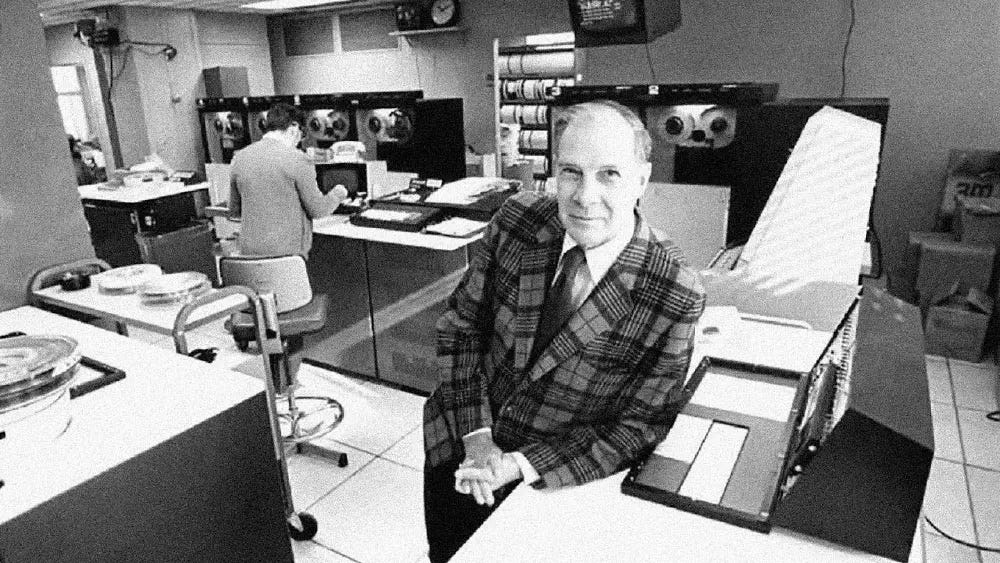You and Your Startup
Richard Hamming worked on the Manhattan Project, led Bell Labs at its peak, and invented a ton of important technologies. He always took new researchers at Bell Labs out to lunch and asked the same series of questions:
What are you working on?
What are the most important questions in your field?
Why are the two different?
Inevitably his guest would get a little uncomfortable as he approached question three. After all, who wants to admit they’re not working on something important? At the same time, imagine the kind of future we might live in if more people reflected on whether their work is the best gift they could give to their fellow humans. What if smart entrepreneurs spent more time working on important problems rather than nearby problems?
I can speak from experience: my first few startups addressed nearby problems. As a teenager I loved videogames, so my first startup was a gaming news website. My second was a P2P file sharing client. My third was a tablet for retail point of sale. How did I pick these ideas? They were easy and fun to build and seemed like they might make money. I spent little time thinking from first principles about the kind of long term future I wanted to live in or how I could best help create it.
Most startup advice I saw then from my heroes (and still see now!) is akin to the Lean Startup, which encourages entrepreneurs to avoid doing too much thinking about what to build and instead listen to customers and iterate quickly. Even Y Combinator’s motto “make something people want” emphasizes reactivity rather than first principles thinking.
Following this advice, I chose startup ideas that, even if wildly successful, wouldn’t leave the world much different. I think a key reason was a lack of a mental model for evaluating what problems might matter, how to weigh them against each other, and ultimately how to make progress towards solving them. I wrote this post in part to give you the advice I wish I had heard myself: think carefully about what you might work on. Consider ideas that might initially seem too big or too crazy. Be methodical and analytical in evaluating the ratio of effort to reward - both for society, and also for yourself.
Being encouraged to stop playing small and instead go work on society’s most important problems is intimidating. Where do you start?
Back in 2008, I was wrestling with this question myself. I wrote out a big list of ways I could help as many people as possible, everything from education policy to operating systems. I ranked every idea by the ratio of reward-to-effort. Reward was the scale and urgency of the problem or opportunity: how many people could it impact, to what degree, and how soon? Effort took into account my existing skills, passion for each subject area, and its relative neglect by others. Neglect is an important factor, because it’s much more difficult to create a nonlinear impact doing the same thing that many others are doing at the same time. Some of the most impactful companies were started in unpopular areas at the time – electric cars, rockets, and search engines were VC dead zones when Tesla, SpaceX, and Google were founded. AI was a VC dead zone when DeepMind and my startup (Vicarious) were founded.
After estimating the reward to effort ratio for my ideas, AI was the clear winner. If it could be built in my lifetime, human level AI is one of the most impactful things anyone could create. My last step was to get a better handle on whether my timing was off. Many ideas are only made possible when certain prerequisites are met (like cheap rechargeable batteries for Tesla, or widespread mobile phones for Uber). I did some math on the key AI prerequisites, like how much faster computers would get over time, how much training data would be available, and how accurately we can image the brain and understand its behavior. I concluded that 2010 was roughly the right time to build an AI startup, and so, Vicarious was born.
As you go through your entrepreneurial journey, I hope you take the time you need at the outset to choose the problem you might work on. If you succeed, will the world look materially different? Reflecting on these questions might lead you towards ideas that not only have the potential to be successful but also lead to a meaningful change in humanity’s future.
Regardless of the problem you choose, the road to success is brutal. There will be times when you question your decisions and the path you've chosen, and there will be moments when it seems all is lost. Knowing this from the outset, you might as well pick something that is worthy of the sacrifice.
As Hamming says, “If you do not work on important problems, you will not do important work.”


